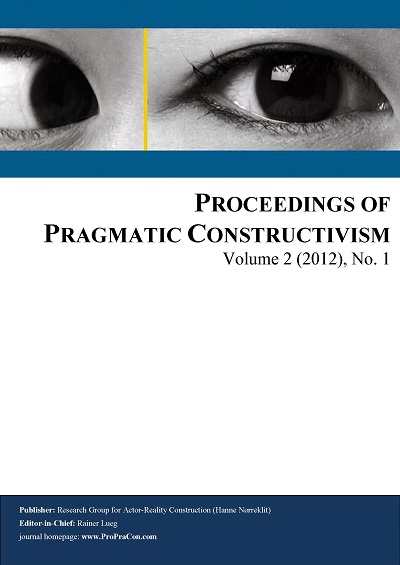Getting out of mechanical management: lessons from Chinese thought
DOI:
https://doi.org/10.7146/propracon.v2i1.16670Nøgleord:
Management models, mechanical management, Western thought, Chinese thoughtResumé
Most management models draw on a mechanical view of organizational action, in which outcomes are given a prominent role, at the detriment of persons. These are generally viewed as instruments serving action and its objectives. As a result work is increasingly losing sense for a number of employees whatever their hierarchical position. Ill-being at work is developing to the extent than managing so-called ‘psychosocial risks’ has become a new branch of human resource management. Simultaneously meaninglessness hinders creativity at work and beyond, performance. Mechanical management is thus detrimental to both individuals and organizations – hence there is an urgent need to address this question.
The objective of this paper is to explore new ways of thinking by which management could avoid the ineluctable consequences of mechanical management. This is an analytical paper which draws upon a variety of contributions in management, psychology and philosophy. In the first Part I will recall the process through which mechanical management is detrimental to both organizational members and organizations, as well as present some proposals by work psychologists to loosen the knot by which mechanical management, which is supposed to be beneficial to organizations and individuals, is actually detrimental to them. Although psychologists open up fertile paths to renew management, their responses only address some aspects of the problem and may fail to change organizational practices in depth. I believe management needs to be questioned both more globally and more deeply.
To this end, I will turn out to philosophy to show, in the second Part, that mechanical management is a direct expression of Ancient Greece thought, which can be considered as the matrix of conceptions of action, world and time that have inspired all Western thoughts and realizations since then – and in particular, management. To break with mechanical management, Part Three will then offer views on Chinese thought - which provides radically different perspectives on action, time and the world and thus can open up innovative paths for thinking new forms of management. The conclusion will discuss the contribution, limits and academic implications of this analysis.Downloads
Publiceret
Citation/Eksport
Nummer
Sektion
Licens
Previous and future use of the work
ProPraCon assumes the non-exclusive rights to publish and store the work of its authors, once they have consented to a publication. Since the rights to publish are non-exclusive, authors are free to re-use their work, e.g., to publish it in other media (as ProPraCon aims at publishing proceedings). Hence, it is explicitly allowed that works submitted to ProPraCon may be published in a somehow similar form in other media. Yet, submitting authors warrant that the work is not an infringement of any existing copyright and will indemnify the publisher against any breach of such warranty.
Permissions
By submitting work to ProPraCon, the authors declare that they have permission to use any content that has not been created by them. Specifically, when using tables, figures or excerpts of more than 400 words, it is expected that the authors…
- …obtain written permission of copyright for the use in print and electronic formats of any of their text, illustrations, graphics, or other material, in their work. This includes any minor adaptations.
- …acknowledge the original source in captions and in the reference list.





